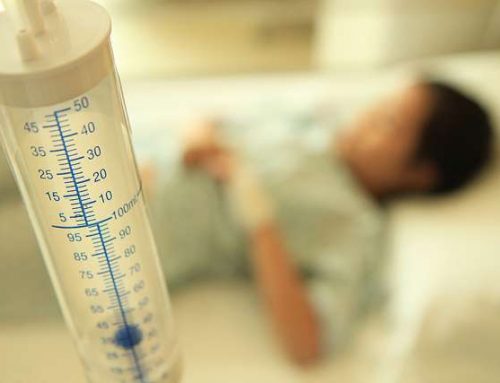
WANG ZHAO | AFPShare 2kSilvia Costantini | Mar 05, 2020
Advice from infectious disease expert and deacon Tim Flanigan.
As the coronavirus disease (COVID-19) continues to infect more and more people around the world, and while science seeks to find a way to curb the spread of this virus before it becomes a pandemic, we as Catholics need to ask ourselves how to behave. There are two levels to this question: one regarding the safety guidelines we should adopt, and the other regarding our responsibility as Christians in the face of this still largely mysterious disease.
We spoke with Dr. Timothy Flanigan, a professor of medicine at Brown Medical School and infectious disease specialist at The Miriam and Rhode Island Hospitals, and a Catholic deacon of the Diocese of Providence, who volunteered in Liberia for months during the ebola crisis.

Let’s begin with the question that every reader would like to ask you: How should we behave regarding the coronavirus? What are the basic norms of health and hygiene we should all observe?

This virus is spread in a similar way to influenza. During the time of an outbreak we should not shake hands and not kiss, but should smile and nod and greet in a very friendly way, but without touching. If anyone is sick with a respiratory illness, they should stay at home until they are better. Colds and other viruses complicate the situation, so the fewer respiratory infections during the time of an outbreak the better. It is OK to get together but it is good to avoid very close crowding. Staying one meter away from others is called “social distancing,” and this has been shown to decrease the spread of respiratory viruses.
What kind of measures do you think a bishop should take to avoid the spread of the virus in the churches in his diocese?
I would recommend at this moment to stop communion by the chalice. The sacraments are very, very important during difficult times of crisis. The sacraments can be delivered safely. The host can be provided to a person without skin to skin contact by placing it in the hand. This is a good time to avoid the handshake of peace. We can all greet each other with a big smile but don’t need to shake hands. We should make sure our smiles are twice as big. We need to help others. During this difficult time, we can visit those who are experiencing financial difficulty or who are socially isolated. We can visit them safely and help safely. The key is to avoid touching, good handwashing, and staying one arm’s-length away.
Let’s talk Catholic doctors and hospitals. How can they be witnesses of the faith in the current epidemic crisis? What could be their added value?
The witness of doctors and healthcare providers and most importantly nurses is incredible. I am convinced that heaven will be full of nurses. There may be a few doctors there but I think that is because the nurses will say, “You can let them in, too.” The nurses are at the heart of health care. They are heroes, and they are so courageous.
What do people need to know about this epidemic? Do you think the media is actually helping communities to understand and to face the virus properly?
The media can be a huge help in order to stop community spread of viral illnesses. But the media can also be a great ally of the virus when the information is incorrect or superficial. The virus of bad information is as dangerous as the coronavirus. This is a top priority. Centers for Disease Control and Prevention and World Health Organization give very, very good information and we should utilize that all the time.
In what way can the Catholic community contribute to help the most vulnerable people (like the homeless, the elderly) now that the epidemic is an actual threat?
For the last 2,000 years the Catholic Church has helped those in most need. Hospitals were started by monasteries. We are providing care as a Church when others have run away. This continues today.
American sociologist Rodney Stark, author of The Rise of Christianity (1996), explains how in the first centuries of the Christian era the behavior of Christians during epidemics was decisive: they didn’t flee the cities like the pagans, and didn’t run away from other people, but motivated by faith, they visited and supported each other, prayed together, and buried the dead.
The witness that Catholics can offer to the world in this difficult moment is to be present: it is the strongest witness possible.










